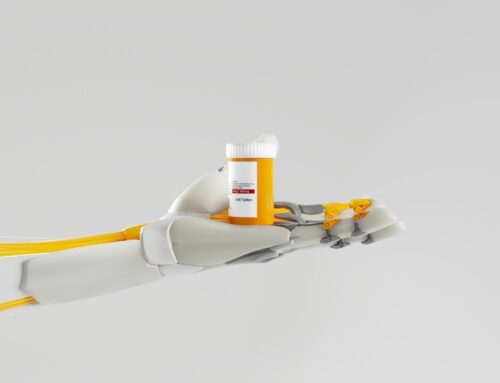Improve your Gut Health and find the right probiotics, prebiotics and postbiotics
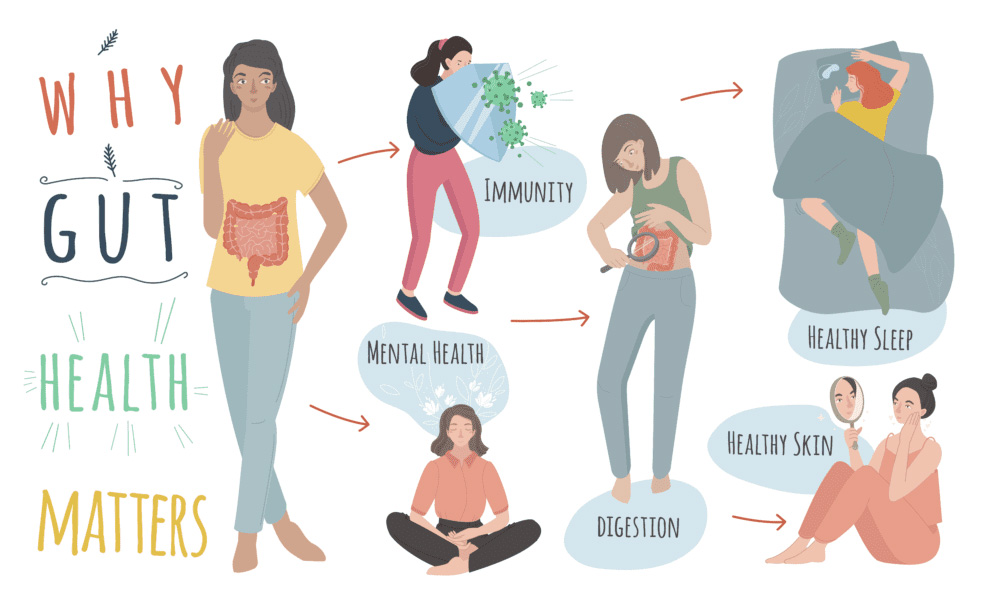
Gut health has become one of those key elements of overall health that can help you build a more resistant body against viruses, a stronger immune system, beautiful skin and according to the latest research can help you with mood issues and depression. A healthy gut fights inflammation and makes you simply a better version of yourself. During the pandemic in the last two years, many of us have realised the importance of preventative health care and the regular practice of habits in the daily lifestyle that can prevent diseases in the first place. Gut Health is one of those things that we can work on as prevention for many diseases, but also for overall feeling of wellbeing. This is perhaps the reason why probiotics became the most sought after supplement, which people believe is the magical answer to solving all their health issues.
With so many probiotic products on the market I am asking myself which ones are the right to choose and how to use probiotics to get the best out of them.
Looking for the experts opinion I am talking to Sandra Mikhail, the founder of Nutrition A_Z, a Bachelor in Nutrition and Dietetics and a Master in advanced Studies in Nutrition and Health, with whom we discuss what is a healthy gut, how to choose the right probiotics and the new hype around pre-biotics and post-biotics. But before we begin our conversation I want to give you some perspective:
What are Probiotics
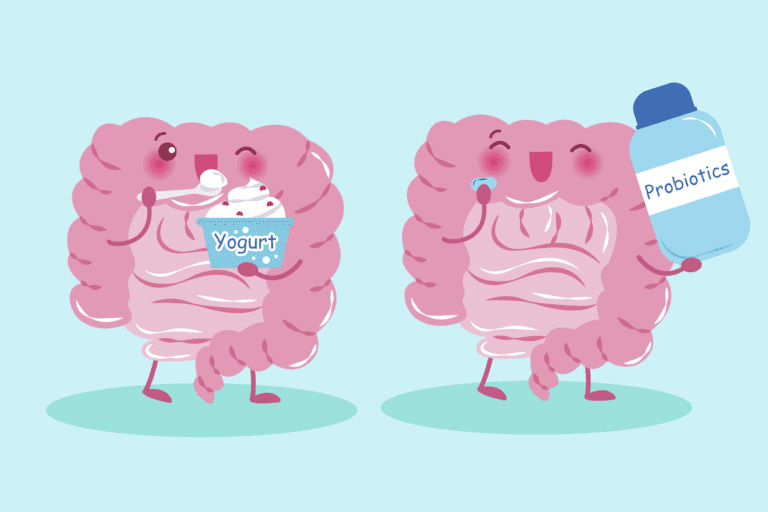
“Probiotics are mainly yeast and bacteria, whose purpose is to keep the colon healthy and strike a balance between “good” and “bad” gut microbes within the intestinal tract (Source)
Although probiotics may seem like a relatively new area of nutrition, scientists discovered them in the early 1900s. Elie Metchnikoff, a researcher many consider to be the “father of probiotics,” observed health benefits from the repeated ingestion of lactic-acid-producing bacteria. Since then, there have been more than 20,000 studies in the area of probiotics and their health implications. (source )
Many types of bacteria are classified as probiotics. They all have different benefits, but most come from two groups:
Lactobacillus and Bifidobacterium.
Lactobacillus may be the most common probiotic. It’s the one you’ll find in yogurt and other fermented foods such as kefir, raw sauerkraut, kimchi, kombucha, miso and tempeh. Bifidobacterium you can find it in some dairy products.
What’s the buzz around gut health
As it turned out in the last few years gut health and microbiome balance are very important for the immune system, for the mental health and skin health and for almost everything going on in the body and brain. And no wonder considering
‘We’re more bacterial than we are human: for each human cell in our body there are almost 1,000 bacterial cells in our gut!’
The microbiome (or microbiota) is a collection of microorganisms, like viruses, bacteria and fungi, that live in and on our body but are not part of our normal human physiology. These microbiomes can be in the gut or intestinal tract—our area of interest—or in our skin cells. In fact, we’re more bacterial than we are human: for each human cell in our body there are almost 1,000 bacterial cells in our gut! And whilst research suggests that bacterial diversity and the abundance of particular species are important to promote and maintain health, we also know that the composition of microbiomes is not uniform. So, on the one hand, microbiomes can interact with our immune system and with our epithelial cells—our skin cells—to have a protective effect against other microorganisms; but, on the other hand, microbiomes can break down and cause disease or inflammation. (Source)
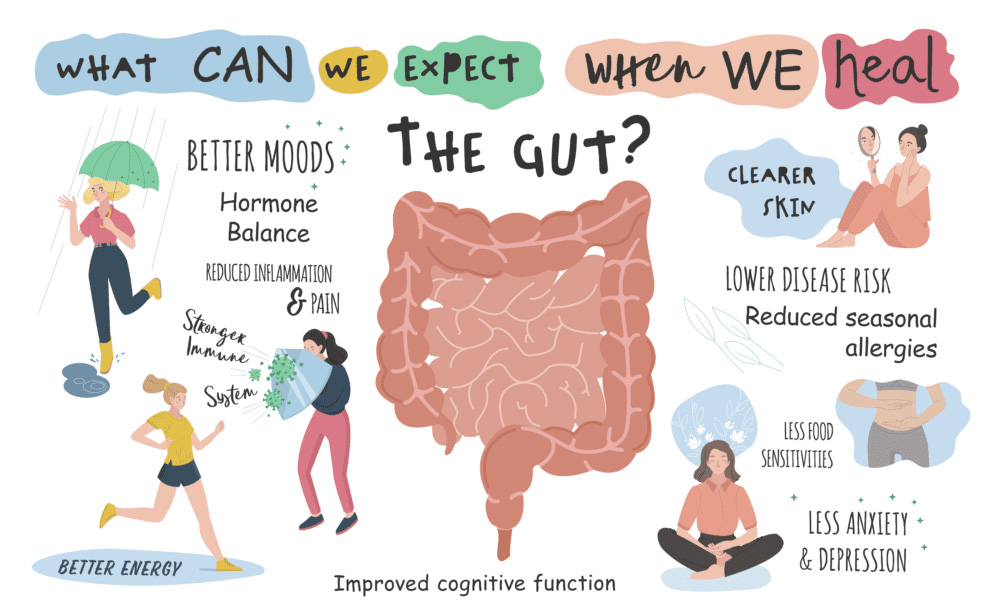
Beside the role that a healthy gut plays for a strong immune system, as it turns out it is essential for the proper function of our brain as well.
Do you ever wonder why people say: “go with your gut” to make a decision or felt “butterflies in your stomach” when nervous? No wonder today people call the Gut your second brain, and this connection have been revolutionizing medicine’s understanding of the links between digestion, mood, health and even the way you think.
Scientists call this little brain the enteric nervous system (ENS). And it’s not so little. The ENS is two thin layers of more than 100 million nerve cells lining your gastrointestinal tract from esophagus to rectum.
“The enteric nervous system doesn’t seem capable of thought as we know it, but it communicates back and forth with our big brain—with profound results.”, explains Jay Pasricha, M.D., director of the Johns Hopkins Center for Neurogastroenterology, whose research on the enteric nervous system has garnered international attention. (source)
Researchers today are finding evidence that irritation in the gastrointestinal system and disbalances in the health of your gut can affect the central nervous system, triggering mood changes, and beyond that anxiety and depression.
Are Probiotics the answer to all your health worries
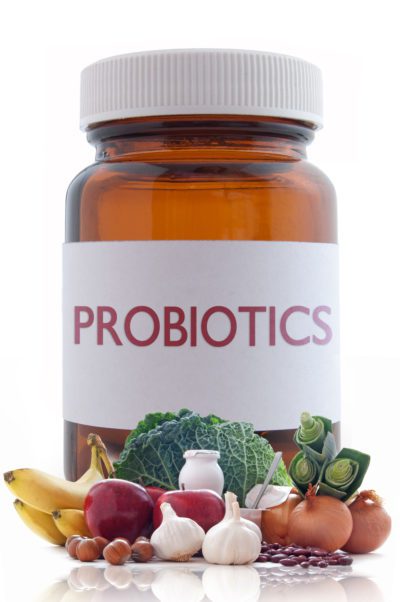
The problem is that everyone’s microbiome is unique, just like two people can’t be the same, but they can be similar. And yet scientists are still grappling to distinguish a healthy microbiome from an unhealthy one. Part of the problem is the potentially vast differences between the microbiomes of apparently healthy people. These differences arise through a complex combination of environmental, genetic and lifestyle factors. The question about a healthy microbiome is almost like the questions: What does a healthy forest look like? A seemingly thriving, verdant wilderness can conceal signs of pollution, disease or invasive species. Only an ecologist can spot problems that could jeopardize the long-term well-being of the entire ecosystem. (source )
“Everything we’re doing now is scratching the surface,” says Professor Tim Spector, an epidemiologist at King’s College London, author of two books on dietary and gut health, and co-founder of the ZOE app, initially developed as a gut health programme, but temporarily re-engineered as a Covid symptom tracker early in the pandemic.
“We are maybe 10% of the way there, because every week, we’re discovering something new.
“Humans want an easy answer [to improve our gut health], but you shouldn’t take anyone seriously who doesn’t say it’s complicated,” he says. “There’s a massive industry that needs a simple message to sell its products. They want to say all you’ve got to do is eat this bar, this yoghurt or this protein drink.”
This brings me to the question – then how do we know which probiotic is right for our microbiome or every time we buy one we are shooting in the dark?
With this question in mind I am talking to Sandra Mikhail about probiotics postbiotics and prebiotics, and how to keep a healthy gut!

Tsitaliya: What are the signs of a healthy and unhealthy gut?
Sandra Mikhail: 90% of the time your bowel movements tells you a lot. I ask my clients to use what is called the Bristol Stool Chart that shows you all the different types of poo. Generally speaking we should be aiming for a type 3 or type 4 poo, meaning a nice sausage poo that passes easily without straining. Anything between one and three times a day is considered normal. What’s not considered normal is if you are poo-ing less than three times a week or more than three times per day.
Other signs of healthy gut is being healthy overall and not getting sick often. Remember that 70 % of the immune system is in the gut.
Other symptoms of an unhappy gut include chronic bloating, skin rashes, headaches, anxiety, reflux and getting sick frequently.
Tsitaliya: How often we should take probiotics?
Sandra Mikhail: We should treat probiotics like medication. It is indicated if you’re experiencing constipation, diarrhoea, of you are suffering from irritable bowel syndrome or inflammatory bowel disease, you will need to consult your gastroenterologist or specialist whether a probiotic supplement is justified.
Other times you should take probiotic is when you travel and want to prevent travellers diarrhoea, especially to destinations where hygiene and water quality are known to cause turbulent tummies.
I wouldn’t recommend that people take probiotics all the time. People should not rely on supplements, but rather on foods that maintain a healthy microbiome. This is where prebiotics come in.
Tsitaliya: What are pre-biotic foods then and how exactly they can help us with our microbiome?
Sandra Mikhail: The prebiotic are types of fibres that pass undigested and go straight to our gut microbes. A few examples are barley, garlic, asparagus, green bananas, inulin. Give it a couple of years and probiotics will no longer be the talk of the town! Prebiotics and postbiotics will be the new hotshots.
Why prebiotics are that important for us nutritionist? When they get to the gut, the healthy bacteria starts to eat them and basically prebiotics feed and promote healthy microbiome. In other words, prebiotics are the food probiotics need to thrive; without prebiotics, probiotics often don’t perform as well.
When the healthy bacteria in your gut, known as probiotic bacteri, feeds on various types of prebiotic food in the colon, that’s when postbiotics are made. These bioactive compounds are very powerful because they are anti-inflammatory and anti-canceropgentic.
One of the highly studied postbiotic is called butyrate and the foods we can eat to boost the production of butyrate, which soon will be available as a supplement too, are barley, raw oats, legumes, chickpeas, cashews. What we are now trying to figure is what foods your microbiome needs to produce postbiotics.
Tsitaliya: What are the most common myths you hear around Probiotics
Sandra: First is that everyone has to take a probiotic and that you have to take probiotic for the rest of your life.
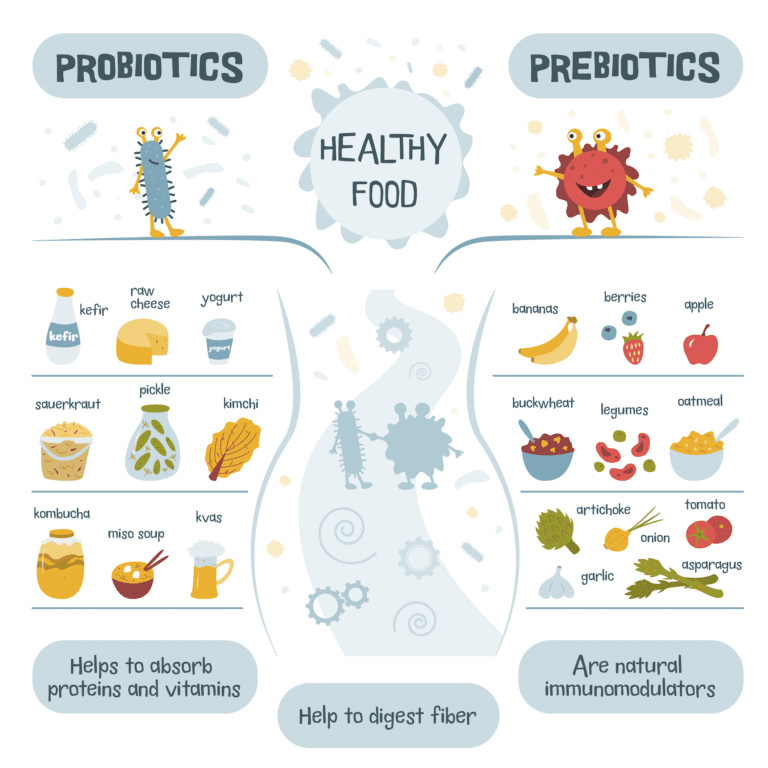
Tsitaliya: What are the top three foods you recommend for gut health?
Sandra: Mushrooms, legumes (beans, lentils and chickpeas) and spinach or anything that’s green.
Tsitaliya: Does it make sense for people to test their stool in order to find how healthy their gut is?
Sandra: The issue with stool tests is that you have so many on the market and yet the most important question for everyone before they do a stool test is to know what is the purpose. Usually I request a stool test to make a parasites screen, when I want to test for inflammation. The commercial tests give you normally a report about all your gut microbiome, but the problem is we don’t know what a normal microbiome should look like. When you go for a blood test for example you have a range of norm, but we don’t know what that looks like for a gut microbiome.
We haven’t discovered thousands of bacteria that exists in your microbiome, we only know some and these labs give you a diversity score. We need diversity in our gut. However, only some labs have named favourable bacteria for example that we should have. We are just starting to learn more in that field. If anyone is curious to learn about how diverse their microbiome is, Microba in Australia and AtlasBiomed or ZOE in the UK are leading labs I would go to these labs for a stool test.
Tsitaliya: Thank you. For more questions you can find Sandra Mikhail at https://nutrition-az.com
and on Instagram
Sign to receive the complete experience
with unpublished content & community deals
